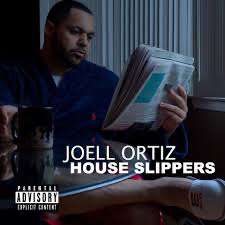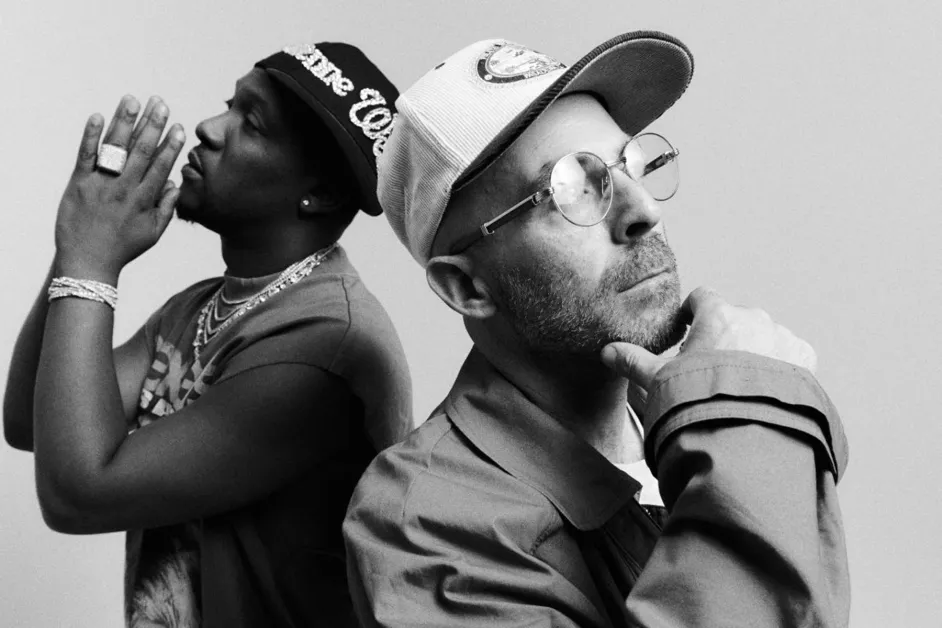Joell Ortiz’s 2014 album “House Slippers” is a vivid depiction of personal rebirth and self-realization, seamlessly weaving together the intricacies of resilience, identity, and vulnerability. Known for his raw lyricism and visceral storytelling, Ortiz is a cornerstone of lyrical East Coast hip-hop. This album, however, marks a distinct shift in his discography as it steps away from the aggressive, hard-hitting street narratives synonymous with his Slaughterhouse days and delves into a more introspective and reflective mode.
From the very first track, also titled “House Slippers,” Ortiz’s lyrical focus is clear: personal growth and transformation. The phrase “house slippers” itself is a metaphor that grounds the listener in a sense of comfort and authenticity. In the hook, Ortiz raps: “I’m feeling good, in my house slippers, my house slippers.” It’s a declaration of comfort in one’s own skin—a stark contrast to the metaphorical shoes he wore in the tumultuous years of his career. This theme permeates the entire project as Ortiz explores his struggles with addiction, personal loss, and career frustrations, ultimately emerging with a sense of clarity and self-acceptance.
The title track sets the tone with a smooth, jazz-inflected beat that carries an undertone of nostalgia, almost like a lullaby for a weary soul. The production, helmed by The Heatmakerz, positions Ortiz’s voice as the anchor—uncomplicated, front-and-center—allowing his words to resonate with urgency and precision. The minimalist instrumentation is not about making a sonic statement; rather, it’s about making room for the statement Ortiz himself is making.
Tracks like “Cold World” and “Better Than” demonstrate the album’s narrative arc. In “Cold World,” Ortiz reminisces about his difficult upbringing in Brooklyn, grappling with self-doubt and the external pressures that once weighed heavily on his psyche. His verses are confessional yet measured, with an emotional honesty that suggests he’s not merely recounting but actively processing his past trauma. He acknowledges that the journey to self-acceptance is neither linear nor easy, and his delivery conveys the exhaustion of having faced such battles.
“Better Than,” featuring singer Maino, is arguably one of the most poignant tracks on the album. Ortiz uses his verses to confront his own shortcomings while reaffirming his determination to rise above them. Lines like “I ain’t got a gimmick / I just tell you how I live it” serve as a testament to Ortiz’s unrelenting commitment to authenticity. He doesn’t shy away from admitting his flaws, nor does he allow them to define him.
The strength of “House Slippers” lies in its ability to balance lyrical complexity with emotional accessibility. Ortiz’s evolution as an artist is evident not just in his choice of subject matter but in the nuances of his flow and delivery. He employs a conversational tone throughout the album, making the listener feel more like a confidant than a spectator. This approach humanizes the themes of pain and redemption, making them not only relatable but also deeply impactful.
In sum, “House Slippers” is more than an album—it’s a declaration of personal rebirth. Joell Ortiz uses the project to lay bare his vulnerabilities, embracing the very imperfections that make him human. The album ultimately serves as a reminder that even in the face of adversity, there is always room to reclaim oneself, to slip into the comfort of one’s own identity—just like slipping into a pair of house slippers.
No comments yet.








